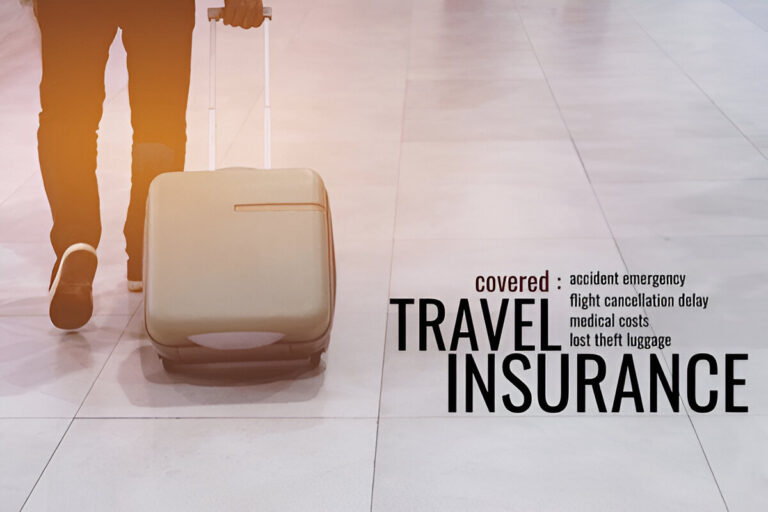South Korea Work Visa for Immigrants – Visa Sponsorship in South Korea
Moving to South Korea for work can be a life-changing decision, offering opportunities for career advancement, cultural enrichment, and personal growth. However, securing the right work visa is a crucial step that can significantly impact your experience in the country.
A South Korea Work Visa allows foreign nationals to reside and work legally in South Korea. The visa is categorized based on the type of employment and the nature of the job. Obtaining the appropriate work visa is essential for ensuring compliance with South Korean immigration laws and enjoying a hassle-free stay.
Types of Work Visas
South Korea offers a variety of work visas tailored to different professional needs and industries. Understanding the specific type of visa you require is crucial for a successful application.
1. E-2 Visa (Foreign Language Instructor)
Designed for individuals teaching foreign languages, primarily English, in South Korean educational institutions.
- Eligibility: Bachelor’s degree in the relevant field, TEFL/TESOL certification preferred.
- Employment: Typically with public or private schools, universities, or language institutes.
2. E-7 Visa (Specially Designated Activities)
For professionals in specialized fields such as engineering, IT, healthcare, and other industries requiring specific expertise.
- Eligibility: Relevant academic qualifications and professional experience.
- Employment: With companies that have a designated license to employ foreign professionals.
3. H-1 Visa (Working Holiday)
Allows young people (usually aged 18-30) from participating countries to work and travel in South Korea for up to one year.
- Eligibility: Citizenship of a country that has a working holiday agreement with South Korea.
- Employment: Temporary and part-time jobs to supplement travel.
4. D-8 Visa (Corporate Investment)
For individuals investing in or managing a business in South Korea.
- Eligibility: Significant financial investment and business experience.
- Employment: Managing or establishing a business entity in South Korea.
5. H-2 Visa (Intra-Company Transfer)
For employees of multinational companies being transferred to a South Korean branch or subsidiary.
- Eligibility: Employment with a multinational company for a specified period.
- Employment: Specific roles within the company’s South Korean operations.
6. E-1 Visa (Professor)
For university professors and researchers engaged in higher education and research.
- Eligibility: Advanced degrees and relevant teaching or research experience.
- Employment: Academic institutions and research centers.
Eligibility Criteria for a Work Visa
Each work visa category has specific eligibility requirements. However, some general criteria apply across most work visas in South Korea:
General Requirements
- Valid Passport: Your passport must be valid for at least six months beyond your intended stay in South Korea.
- Completed Application Form: Accurately filled out visa application form, obtainable from South Korean embassies or consulates.
- Photograph: Recent passport-sized photograph adhering to South Korean visa photo specifications.
- Employment Contract: Official contract from a South Korean employer specifying job role, salary, and employment terms.
- Academic Qualifications: Degrees and certifications relevant to the job position.
- Health Insurance: Proof of health insurance coverage for the duration of your stay.
- No Criminal Record: Police clearance certificate may be required to prove a clean criminal history.
- Visa Sponsorship: Employer or designated sponsor must provide necessary documentation supporting your visa application.
Specific Criteria Based on Visa Type
- E-2 Visa:
- Bachelor’s degree in the relevant field.
- TEFL/TESOL certification preferred.
- Native-level proficiency in the language you intend to teach.
- E-7 Visa:
- Relevant academic and professional qualifications.
- Experience in the specialized field.
- Job offer from a company with the authority to employ foreign professionals.
- H-1 Visa:
- Age typically between 18-30.
- Citizenship of a participating country.
- Proof of financial means to support your stay.
- D-8 Visa:
- Significant financial investment in a South Korean business.
- Detailed business plan and proof of investment.
- Experience in managing or establishing businesses.
- H-2 Visa:
- Employment with a multinational company.
- Specific job role within the South Korean branch.
- Duration of employment with the parent company.
- E-1 Visa:
- Advanced academic degrees.
- Relevant teaching or research experience.
- Employment with a recognized academic institution.
Visa Sponsorship in South Korea
Many foreign workers in South Korea secure employment through visa sponsorship. This process involves an employer sponsoring your visa, making it easier for you to obtain legal authorization to work. Below are key aspects of visa sponsorship:
- Employer Responsibility: The sponsoring company will handle most of the paperwork, including the submission of your visa application to the Ministry of Justice.
- Industries Offering Sponsorship: Common sectors that provide visa sponsorship include education (especially for English teachers), IT, manufacturing, and hospitality.
- Work Contract: Your employer must provide a valid work contract outlining your job description, salary, and other employment conditions.
- Employment Permit System (EPS): For low-skilled workers, the EPS program facilitates employment and sponsorship opportunities in agriculture, construction, and manufacturing.
Benefits of Having a Sponsor
- Enhanced Credibility: Sponsorship by a reputable company increases the likelihood of visa approval.
- Streamlined Process: Sponsors assist in navigating the complex visa application process.
- Support System: Access to resources and support from the employer during your stay.
Step-by-Step Application Process
Securing a South Korea Work Visa involves several steps, each requiring careful attention to detail to ensure a successful application.
Step 1: Secure a Job Offer
Before applying for a work visa, you must secure a job offer from a South Korean employer. This employer will act as your sponsor and provide the necessary documentation to support your visa application.
Step 2: Gather Required Documentation
Prepare all necessary documents as per the visa category requirements. Commonly required documents include:
- Valid Passport: Ensure your passport is valid for at least six months beyond your intended stay.
- Completed Visa Application Form: Obtain and accurately fill out the form from the South Korean embassy or consulate.
- Photograph: Recent passport-sized photograph adhering to specifications.
- Employment Contract: Official contract detailing job role, salary, and terms of employment.
- Academic Qualifications: Degrees, diplomas, and relevant certifications.
- Financial Proof: Bank statements or proof of financial stability.
- Health Insurance: Proof of valid health insurance coverage.
- Police Clearance Certificate: If required, to demonstrate a clean criminal record.
Step 3: Complete the Visa Application Form
Fill out the visa application form accurately, ensuring that all information matches your supporting documents. Any discrepancies can lead to delays or rejection.
Step 4: Submit the Application
Submit your application through the appropriate channels:
- Online Submission: Some visa categories allow for online applications through official South Korean visa portals.
- In-Person Submission: Visit the nearest South Korean embassy or consulate to submit your application in person.
- Authorized Visa Centers: Utilize authorized visa application centers that facilitate the submission process.
Step 5: Pay the Visa Fee
Pay the required visa application fee, which varies based on the visa category and processing speed. Ensure that you keep the payment receipt as proof of payment.
Step 6: Attend an Interview (If Required)
Some visa categories may require an in-person interview to assess your eligibility and intentions. Prepare for the interview by reviewing your application and supporting documents.
Step 7: Wait for Processing
The processing time for South Korea Work Visas typically ranges from 4 to 8 weeks, depending on the visa category and the volume of applications. Track your application status through the embassy or visa portal.
Step 8: Receive Your Visa
Once approved, your visa will be stamped on your passport. Ensure that all details are correct, including validity dates and visa type.
Step 9: Plan Your Travel
With your visa in hand, you can proceed to make travel arrangements and prepare for your move to South Korea. Ensure that you comply with any entry requirements, such as health checks or quarantine measures, if applicable.
Common Mistakes to Avoid
Avoiding common pitfalls can significantly enhance your chances of a successful visa application. Here are some mistakes to watch out for:
1. Incomplete Documentation
Failing to provide all required documents can lead to application rejection. Use a comprehensive checklist to ensure that all necessary documents are submitted.
2. Inaccurate Information
Providing incorrect or inconsistent information can raise red flags and result in delays or denial. Always verify the accuracy of your application details.
3. Missing Deadlines
Submitting your application late can jeopardize your plans. Start the application process well in advance of your intended travel date to account for processing times and potential delays.
4. Underestimating Financial Requirements
Ensure you have sufficient financial proof to support your stay. Underestimating the financial requirements can lead to rejection, even if other aspects of your application are strong.
5. Ignoring Language Proficiency
Ensure you meet the language proficiency requirements for your job role or visa category. Failing to do so can result in visa denial.
6. Not Understanding Visa Conditions
Familiarize yourself with the terms and conditions of your visa to avoid violations that could lead to penalties or deportation.
7. Assuming All Visa Categories Are the Same
Different visa categories have different requirements and benefits. Ensure you are applying for the correct visa type that aligns with your employment and personal circumstances.
Conclusion
South Korea’s thriving economy and diverse job opportunities make it an attractive destination for foreign workers. Take the first step today by exploring job opportunities and preparing your application. South Korea awaits with open arms and endless possibilities.



